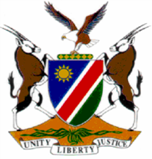REPUBLIC OF NAMIBIA

HIGH COURT OF NAMIBIA NORTHERN LOCAL DIVISION, OSHAKATI
REVIEW JUDGMENT
Case No.: CR 7/2017
In the matter between:
THE STATE
and
HAAMENDELINA JEREMIA WENDEINGE ACCUSED
HIGH COURT NLD REVIEW CASE REF No.: 89/2017
Neutral citation: S v Wendeinge (CR 7/2017) [2017] NAHCNLD 68 (24 July 2017)
Coram: DAMASEB JP and JANUARY J
Delivered: 24 July 2017
Flynote: Criminal Procedure – Special review – Legal representation – A fundamental right – Failure to afford the opportunity not necessarily vitiate in proceedings – Failure in this case vitiates proceedings – Proceedings set aside.
Summary: The accused in this matter was charged in the magistrate’s court, Ondangwa. His right to legal representation was explained on his first appearance whereupon he elected to apply for legal aid. On his third appearance he did not waive this right or his election to apply for legal aid. As a result of an omission to peruse the previous court record by the magistrate and seemingly the prosecutor, the trial proceeded in the absence of a legal representative. The accused asked no questions to witnesses. This court finds that in the circumstances the proceedings are vitiated by the irregularity. The proceedings are set aside.
ORDER
The proceedings are set aside.
______________________________________________________________________
JUDGMENT
______________________________________________________________________
JANUARY J and (DAMASEB JP concurring)
[1] This matter is before me sent for special review by the magistrate of Ondangwa requesting that the proceedings should be set aside. The accused at his first appearance in court indicated that he wishes to apply for legal aid. On his third appearance, the magistrate and it seems the public prosecutor did not peruse the record of previous proceedings. The charge was put to the accused and he pleaded not guilty thereto without legal representation. Evidence of two State witnesses was led and although the right to cross-examination was explained to the accused, he indicating that he understood, he did not ask any questions of the witnesses.
[2] Eventually a legal representative was appointed by the Directorate Legal Aid. This legal representative did not appear on different dates to which the case was postponed. The record reflects that she had resigned in the meantime. A new legal aid legal representative was appointed. She alerted the court to the fact that the case proceeded without legal representation despite the accused indication to apply for legal aid. She applied that the matter be sent for special review because the accused’s constitutional right to a fair trial was infringed.
[3] ‘The rights provided by the Constitution of Namibia in art 12(1)(e), namely that' all persons should be afforded adequate time and facilities for the preparation of their defence, before the commencement of and during their trial, and shall be entitled to be defended by a legal practitioner of their choice' are there to ensure that all the offenders charged with criminal charges and appearing before the criminal court are afforded a fair trial. The right to be legally represented is a fundamental right. Whether the failure of the accused to be afforded the opportunity to be represented results in a failure of justice is a question of fact which depends on the circumstances of each case. (Paragraphs [11] and [12] at 1145D–F.)1
[4] It by no means follows that where there is a failure to afford legal representation there must necessarily be a failure of justice resulting in the proceedings being vitiated. In the case of In S v Mwambazi 1990 NR 353 at 356B, Levy J went on to refer with approval to the following passage from the judgment of Hoexter JA in S v Mabaso and Another 1990 (3) SA 185 (A) at 204C:
'Where a general duty rests upon a judicial officer to inform an unrepresented accused that he has a right to be legally represented, the failure to discharge that duty does not inevitably involve the commission of an irregularity in the judicial proceedings involved. Whether or not an irregularity has been committed will always hinge upon the peculiar facts of the case; and it need hardly be said that much depends upon the extent of the accused's own knowledge of his rights.'
[5] In this case the accused indicated at his first appearance that he wanted legal representation. On his third appearance there is no indication that he waived the right to legal representation. The omission by both the learned magistrate and seemingly the public prosecutor, in my view, caused a flagrant disregard of the accused’s constitutional right to a fair trial. The accused was not afforded a legal representative and in addition not afforded adequate time and facilities for the preparation of his defence. I find in the circumstances of the matter that the irregularity is of such a nature that the proceedings are vitiated and stand to be set aside.
_____________________
H C JANUARY
JUDGE
I agree,
_____________________
P T DAMASEB
JUDGE PRESIDENT
1 S v Kambatuku 2014 NR 1142 (HC) Headnote at 1142 G-I.
Cited documents 0
Documents citing this one 2
Judgment 2
| 1. | S v Erastus (7) (CRIMINAL 48 of 2021) [2021] NAHCMD 259 (27 May 2021) | |
| 2. | S v Johannes (5) (CRIMINAL 31 of 2021) [2021] NAHCMD 214 (10 May 2021) |